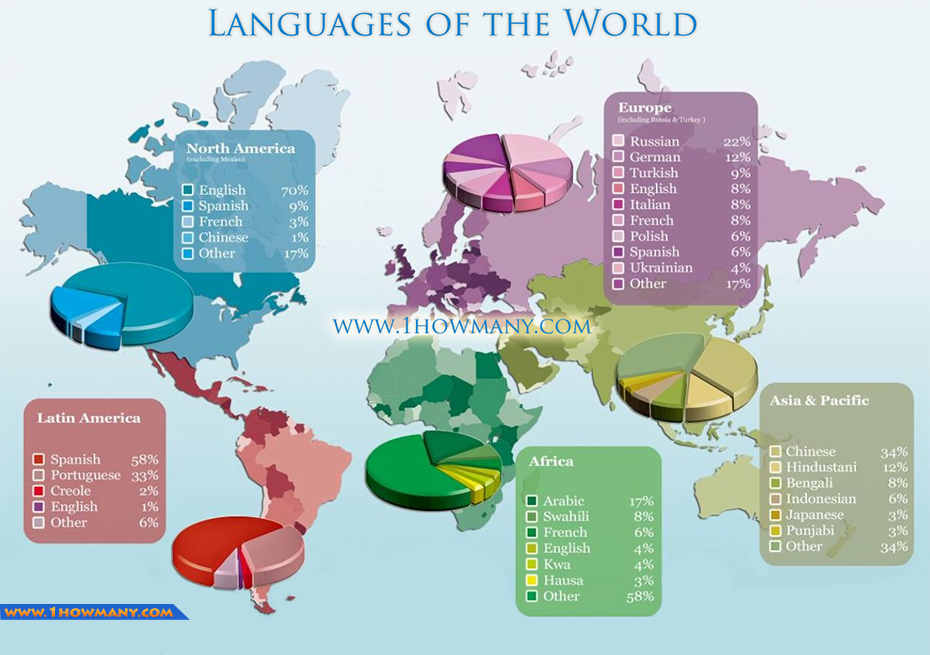www.1howmany.com
Example How Many Languages in the World
Social Science / How Many Languages in the World
How Many Languages in the World
If you do not want to go into detail, just trust in professionals’ opinions, which state the following:
- There are from 6800 to 6900 distinct languages in the modern world
As you see, even scientists are not able to give a more or less exact number. The Ethnologue organization speaks about approximately 6900 languages, and specialists from the National Virtual Translation Center agree with it. The Linguistic Society of America says that there are about 6800 spoken languages.
The Most Popular Language in the World
Do you know what language is the most widely spoken one? If you think it is English, you are badly mistaken. Look at the table below.
Language
Number of native speakers
Mandarin Chinese
about 880 million
Spanish
about 325 million
English
about 315-380 million
Arabic
about 205-425 million
Hindu
about 185 million
Portuguese
about 180 million
Bengali
about 175 million
Russian
about 145 million
Japanese
about 130 million
German
about 95 million
As you can see, the main problem is to estimate the number of speakers of Arabic.
Here you will find some really interesting facts about languages.
- The population of Europe is about ¼ of the whole world, but Europeans speak only 234 languages.
- About 94% of all languages are regularly spoken by just 6% of the population of the world.
- Most languages are constantly used by less than one thousand native speakers.
- K. David Harrison, a linguist from the Swarthmore College, predicts that by 2050 about 90% of spoken languages will be dead.
- In Papua New Guinea there are less than 5.5 million citizens and about 830 languages spoken by them.
- The United Nation has six official languages, used in meetings: Arabic, Chinese, French, English, Spanish, and Russian.
- Esperanto is the most popular artificial language.
- The number of speakers of English in China is larger than in the USA.
If you want to get a neat definition of a language, you can use the utterance of some anonymous New York teacher, who said that any dialect can be called a language if it has its army and its navy.

- A linguist is a person, studying or teaching linguistics, which is the study of the language in general meaning and its structure.
- A dialect is a particular variant of a language, peculiar to some social group or region.
You may be interested in:
Comments
